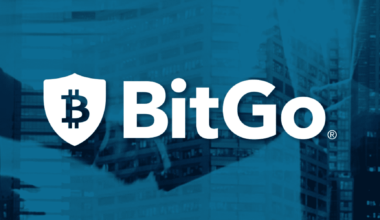Appropriated energy assets, or DERs, can possibly disturb conventional power markets. Hence, it shouldn’t come as an unexpected that imaginative nations are looking toward rising advancements that may permit DERs to vary whole energy economies.
Germany specifically is keen on utilizing DERs to drive its computerized energy economy while additionally consenting to the ECU Green Deal. therein capacity, the Deutsche Energie-Agentur, otherwise called DENA — the basic administrative gathering in command of energy development in Germany — declared designs to preliminary a blockchain-based account build a sophisticated vault for DERs.
Sara Mamel, senior fare in digitalization at DENA, revealed to Cointelegprah that DENA divulged a pilot venture a month and a half back called the “Blockchain Machine Identity Ledger,” or BMIL.
As indicated by Mamel, BMIL is being actualized together with Energy Web, a blockchain-centered not-for-profit, alongside 20 different accomplices within the energy and blockchain areas:
“This could be a profoundly aggressive task with the target of testing a foundation layer for the german advanced energy arrangement of things to come back. we’d like this undertaking to possess the best effect workable for the energy area normally, which is that the reason we have an exceptionally imaginative set-up.”
Blockchain for DER mechanization
Jesse Morris, the most client official for Energy Web, revealed that BMIL will build a computerized library for DERs in Germany.
Instances of DERs incorporate housetop sun based photovoltaic force stations, battery energy stockpiling just like the Tesla Powerwall, keen indoor regulators, and electric vehicle charging stations. Morris included:
“For power frameworks around the globe, this speaks to a monstrous move in venture and foundation. From an incorporated framework with a moderately modest number of extremely enormous force plants to a decentralized framework with countless little resources functioning as a feature of a much bigger entirety.”
As indicated by Morris, a blockchain-based computerized library for DERs use decentralized identifiers that empower resources for self-register within the catalog. this allows outsiders like DER installers to effectively check claims about certain DERs.
This arrangement must likewise help lattice administrators carry DERs into different market applications to administer matrix administrations, which might fill in because the reason for smoothed out settlements after energy administrations are conveyed.
This is critical, particularly for a nation like Germany, which positions because of the fourth-biggest economy around the world. It’s additionally fascinating to signalize to it an EU Parliament record on DERs recommends that by 2024, the worldwide arrangement of DERs will have beaten the organization of incorporated energy age.
The record further expresses that in Germany, renewables created from DERs hold a critical piece of the pie, preparing for more decentralized energy creation.
Pushing blockchain interoperability as far as possible block
In the event that effectively executed, Morris clarified that BMIL could fill in because the reason for a good scope of DERs supporting both Germany’s discount and retail power advertises: “This will make it simple, proficient and minimal effort for any DER in Germany to require an interest within the energy market.
Lattice administrators and utility suppliers will likewise access an undiscovered decarbonized Germany energy framework.”
Nonetheless, specialized difficulties remain. Mamel from DENA noticed that BMIL is an undertaking worked round the reason for interoperability — perhaps the simplest test up to now. While DENA is an innovation skeptic, Mamel disclosed that DENA means to check a solution that may be relevant to the German energy area, which as of now comprises a decentralized system with numerous industry players utilizing various principles.
Accordingly, DENA chose to adopt an interoperability strategy to drive Germany’s energy economy, testing two blockchain advancement conditions in BMIL.
Both Ethereum and Substrate, the blockchain-building system for Polkadot, are going to be applied, alongside various ideas with reference to decentralized personality conventions. “The aftereffects of this test stay to be seen, yet we are profoundly sure that we are also setting another norm for the energy business overall,” said Mamel.
In the event that interoperability challenges are met, the BMIL task could profit the entire blockchain area. as an example, Jonathan Waldenfels, a blockchain engineer at Energy Web, disclosed to Cointelegraph that one issue within the blockchain space is that there are many use cases running on different various chains.
As indicated by Waldenfels, BMIL attempts to reflect only this within the pilot venture:
“Energy Web hopes to enhance within the blockchain space and wishes to perceive how our tech stack, EW-DOS, can incorporate with new advances. For EW, this pilot is a fantastic occasion to research how EW-DOS is used across base use cases running on various chains on a mutual character library.
Furthermore, it shows how EW-DOS can coordinate into new blockchain advances like Substrate and Polkadot.”
Waldenfels expects this utilization case to be a conceivable business design pushing ahead and trusts the energy area can help the full crypto industry see what’s conceivable by consolidating various chains and biological systems under one umbrella with this venture.
Shouldn’t something is said about guidelines?
Specialized difficulties aside, administrative norms could likewise find yourself being a problem for such arrangements. Mamel clarified that the German energy area is among the foremost muddled and managed ones in the world. in this capacity, BMIL professes to be completely in line with all guidelines within the German energy area.
“It was vital for DENA to figure inseparably with existing administrative rules, attempting to enhance and support existing guidelines to the subsequent level by giving fascinating use cases to construct a scaffold among hypothesis and practice,” said Mamel.
Notwithstanding, Mamel noticed that significant inquiries stay, for instance, the way to guarantee that the BMIL blockchain arrangement is viable with the final Data Protection Regulation, alongside understanding the executive difficulties that will come up when DENA endeavors a “full turn out” of the Blockchain Machine Identity Ledger within the German energy framework.


